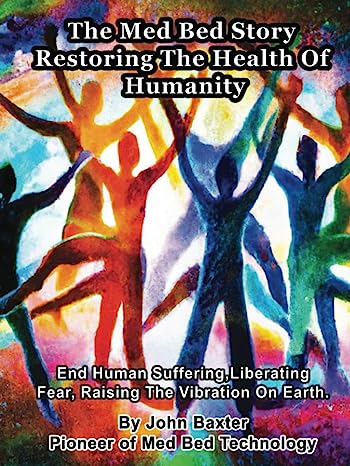In our fast-paced world, it's easy to underestimate the importance of a good night's sleep. However, research continuously highlights the significant role sleep plays in overall well-being, influencing everything from physical recovery to emotional health. Sleep health is a crucial aspect of living a balanced life, and understanding how rest impacts your body can help you make better choices to support your overall wellness. For more in-depth information, you can explore https://sleeplongevityhub.com, which delves into various aspects of sleep and its influence on health.
The Critical Role of Sleep in Health
Sleep is not just a period of inactivity; it's an essential process during which your body restores and regenerates. During sleep, vital systems in the body work to repair tissues, consolidate memories, and regulate hormones, ensuring that both the mind and body function optimally. Research demonstrates that people who consistently get the recommended 7-9 hours of sleep each night tend to enjoy better health outcomes.
1. Physical Health and Sleep
Physical recovery is one of the key processes that occur during sleep. Quality sleep supports:
-
Muscle repair and growth: Deep sleep is when the body releases growth hormones that facilitate muscle repair and tissue regeneration. This is why athletes and fitness enthusiasts prioritize sleep as part of their training regimen.
-
Immune function: Sleep helps the body produce and release cytokines, which are proteins that target infection and inflammation. Poor sleep can impair immune function, making the body more susceptible to illnesses. Articles at https://sleeplongevityhub.com highlight the connection between sleep and immune health, emphasizing how important sleep is in keeping the body’s defense systems strong.
-
Metabolism and weight regulation: Sleep also plays a significant role in regulating metabolism. Studies suggest that insufficient sleep can lead to weight gain due to imbalances in hunger-related hormones like ghrelin and leptin. Lack of sleep tends to increase ghrelin (which stimulates appetite) and decrease leptin (which signals fullness), leading to overeating and weight gain.
2. Mental Health and Sleep
Sleep is equally crucial for mental well-being. When you don't get enough sleep, your brain's ability to function properly diminishes, affecting cognition, mood, and emotional stability.
-
Cognitive performance: Sleep is essential for memory consolidation and learning. During sleep, the brain processes information gathered during the day, consolidating it into long-term memory. https://sleeplongevityhub.com offers insights into how sleep influences cognitive functions like attention, problem-solving, and decision-making.
-
Emotional regulation: Lack of sleep can exacerbate mood disorders such as anxiety and depression. Without adequate sleep, the brain’s emotional centers become hyperactive, making it harder to regulate emotions and handle stress.
-
Stress reduction: Quality sleep helps lower cortisol, the stress hormone, allowing the body to relax and recover from the daily grind. On the other hand, sleep deprivation increases cortisol levels, leading to heightened stress, irritability, and even long-term health problems like high blood pressure.
The Consequences of Sleep Deprivation
Failing to prioritize sleep can have severe consequences for both physical and mental health. Chronic sleep deprivation has been linked to an increased risk of numerous health conditions, including heart disease, diabetes, and stroke. It also affects emotional well-being, contributing to higher levels of anxiety and depression.
1. Risk of Chronic Illness
Poor sleep has been associated with a variety of chronic illnesses. Research shows that people who consistently sleep less than six hours a night are at greater risk of developing conditions like heart disease, diabetes, and obesity. As highlighted by https://sleeplongevityhub.com, sleep helps regulate blood pressure and insulin sensitivity, both of which are critical for preventing heart and metabolic disorders.
2. Mental and Cognitive Decline
Chronic lack of sleep can also lead to cognitive decline and mental health issues. Without enough sleep, the brain struggles to process and store information, leading to poor concentration, memory issues, and impaired decision-making abilities. Additionally, studies suggest that long-term sleep deprivation may increase the risk of developing neurodegenerative diseases like Alzheimer's.
3. Emotional and Social Impact
The emotional toll of poor sleep is significant. People who don’t get enough sleep are more likely to experience mood swings, irritability, and difficulty managing stress. This can negatively impact social relationships, job performance, and overall quality of life.
How to Improve Your Sleep Health
Improving sleep health requires a combination of lifestyle changes and sleep-friendly habits. Fortunately, small adjustments can go a long way toward promoting better sleep and improving overall well-being.
1. Create a Consistent Sleep Schedule
One of the best ways to improve sleep is by maintaining a consistent sleep-wake schedule. Going to bed and waking up at the same time every day helps regulate your internal clock, or circadian rhythm, making it easier to fall asleep and wake up naturally.
2. Establish a Relaxing Bedtime Routine
A relaxing bedtime routine signals to your body that it’s time to wind down. Activities like reading, meditating, or taking a warm bath can help prepare your mind and body for restful sleep. Articles on https://sleeplongevityhub.com recommend avoiding screens before bed, as the blue light emitted by devices like phones and tablets can interfere with the production of melatonin, the hormone that regulates sleep.
3. Optimize Your Sleep Environment
Your sleep environment plays a crucial role in sleep quality. A cool, quiet, and dark room is ideal for promoting restful sleep. Investing in a comfortable mattress and pillow can also make a significant difference in how well you sleep. Grounding products, can further enhance your sleep environment by helping to reduce stress and improve relaxation.
4. Watch Your Diet and Exercise
What you eat and drink can also impact your sleep. Avoid consuming caffeine and heavy meals close to bedtime, as they can interfere with your ability to fall asleep. Regular physical activity is also essential for good sleep, but try to avoid vigorous exercise too close to bedtime, as it may leave you too energized to sleep.
Conclusion: The Importance of Prioritizing Sleep Health
Sleep is a fundamental part of a healthy lifestyle, influencing nearly every aspect of physical and mental health. From immune support and cognitive function to emotional well-being and stress management, quality sleep is essential for living a balanced, fulfilling life. Prioritizing sleep health with consistent routines, a calming environment, and grounding techniques can dramatically improve your overall wellness.
For more tips on optimizing sleep and improving your health, be sure to visit https://sleeplongevityhub.com, where you'll find valuable resources and insights on how to achieve better sleep.




